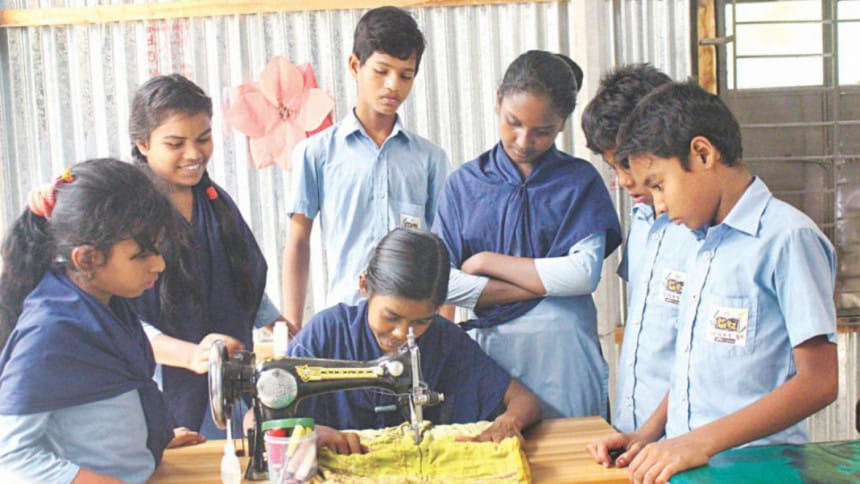Transforming education, transforming youth

Around the world, August 12 is celebrated as the International Youth Day. This year's theme, "Transforming Education", highlights efforts to make education more relevant, equitable and inclusive for all youth, including efforts by youth themselves.
Without a doubt education and training have the power to change a life and a country. As a country transitioning into middle-income status, Bangladesh anticipates to reap its demographic dividend, given its large youth population. But a demographic dividend is not a given, it requires good health, education and decent work as a requisite. The government has therefore rightly put an emphasis on education and skills development, with the specific emphasis of improving the quality of education in relation to employment and economic development.
Reforming Technical and Vocational Education and Training (TVET), to ensure Bangladesh's competitiveness in the global market and reduce poverty, has resulted in an increase in the number of students enrolling in TVET programmes where students are equipped with technical skills and knowledge of trades. But in an era of changing contexts, such as technological innovation, demographic changes and globalisation, technical skills are no longer enough. Young people need to possess "abilities for adaptive and positive behaviour, that enable them to deal effectively with the demands and challenges in everyday life." These abilities we speak of are referred to in numerous ways by different sectors: life skills, transferrable skills, soft skills.
Just as a rose by any other name would smell as sweet, these "life skills", regardless of how they are referred to, enhance young people's abilities and help them achieve their full potential. WHO has identified a set of skills that is regarded as core: creative-thinking, critical-thinking, communication, interpersonal relationship-skills, decision-making, problem-solving, self-awareness, empathy, coping with emotions and coping with stress. Unlike technical and vocational skills, life skills are applicable to all contexts and stages of life. Whether at the workplace or in personal life, life skills are critical from interactions with others to decision-making.
Why should life skills play a central part of a technical and vocational curriculum? Life skills help youth to further apply the technical and vocational skills they achieve in their lives, to become more responsive, creative and confident as they build life competencies. Life skills are also highly sought after by employers. In addition to the technical expertise required for the job, employers often look to hire those with ability to work in teams, communicate effectively and solve problems. In fact, with a constantly evolving labour market, life skills are sometimes even seen as more important than technical skills. Life skills make youth more employable.
At UNFPA we are aware that Life Skills Education is not prioritised in Bangladesh's TVET programmes. Its application is neither systematic nor standardised, and there is little policy guidance and quality control. As a result, topics and content of life skills modules in existing vocational programmes differ markedly between organisations and providers, and are often not delivered effectively. This is why UNFPA, as the UN agency responsible for ensuring all young people meet their full potential, works closely with the National Skills Development Authority (NSDA) to establish minimum standards for Life Skills Education and ensure that it becomes a standard component in all TVET programmes. Transforming education by foregrounding life skills and ensuring youth have opportunities to develop these skills is also aligned with the International Conference on Population and Development (ICPD), Programme of Action (PoA). The importance of investing in young people and equipping them with life skills, highlighted 25 years ago at the ICPD, is just as valid today for Bangladesh.
On this International Youth Day, where we commit to making education more relevant, equitable and inclusive, UNFPA wants to transform education to not only meet the targets of SDG 4 but also to meet the full spectrum of demands of the labour market and unleash the potential of the young in Bangladesh. Together with NSDA and other key partners in the skills development arena, UNFPA aims to help equip Bangladeshi youth with life skills, so that they can live to their fullest potentials.
Eiko Narita is Officer-in-Charge, UN Population Fund.

 For all latest news, follow The Daily Star's Google News channel.
For all latest news, follow The Daily Star's Google News channel. 



Comments